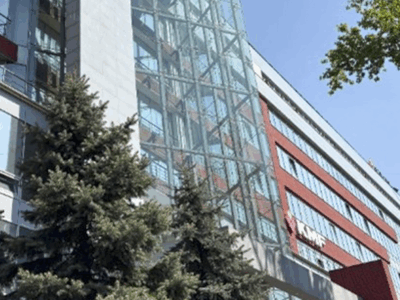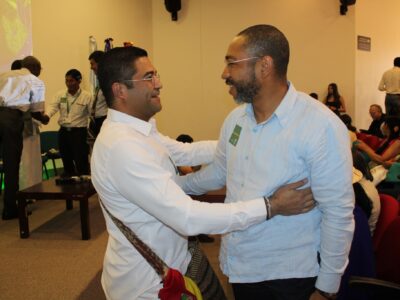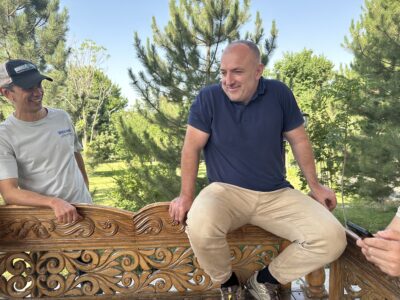
Everyone should be good at something, right? Everyone should have one skill they practice their whole lives that their bodies are made to do. As it turns out, we all have a skill like that: moving energy. This movement of energy from one place to another is what forms our ecosystems.
In simplest terms, pasture management is energy management. Farmers in the Democratic Republic of Congo (DRC) know this and carefully watch over their pastures as cattle take energy from the soil, in the form of forage, and farmers return it as nutrients. Farmers monitor this cycle because they also know life-threatening problems arise when they take more energy out of the soil than they put back.
As director of ACDI/VOCA’s Farmer-to-Farmer volunteer program, I’m always searching for way to look at the USAID Farmer-to-Farmer Program differently. This program sends American agricultural experts on short-term, volunteer assignments in the developing world. A recent assignment I helped coordinate in DRC gave me the opportunity to think about the program in terms of energy flows.
Symphorien Kathavo, a professor at the Catholic University of Butembo, collaborates with ACDI/VOCA in DRC to help farmers manage their pastures. Together with David Roberts, a Farmer-to-Farmer volunteer, they teach farmers about carrying capacity, or how many animals can graze in an area without deteriorating the ecosystem. In other words, how much energy can they take from their pastures without killing it or themselves in the process?
Before David volunteered with ACDI/VOCA, no other farm served by the university had determined its carrying capacity. Now, Symphorien and David have begun research at four farms to determine their carrying capacity. First, the farmers involved will divide their pastures into halves or thirds and adjust how long their livestock spend in each paddock. Then they will record the time and number of livestock in each paddock, plus the height of forage plants before and after their livestock graze. After six months, they can evaluate the health and sustainability of their pastures.
The process may be long and somewhat complicated, but learning how to determine their pastures’ carrying capacity will help the farmers we work with in DRC better manage their ecosystems. And learning how to better manage their ecosystems will empower them to build a hopeful future in DRC.
Comments







